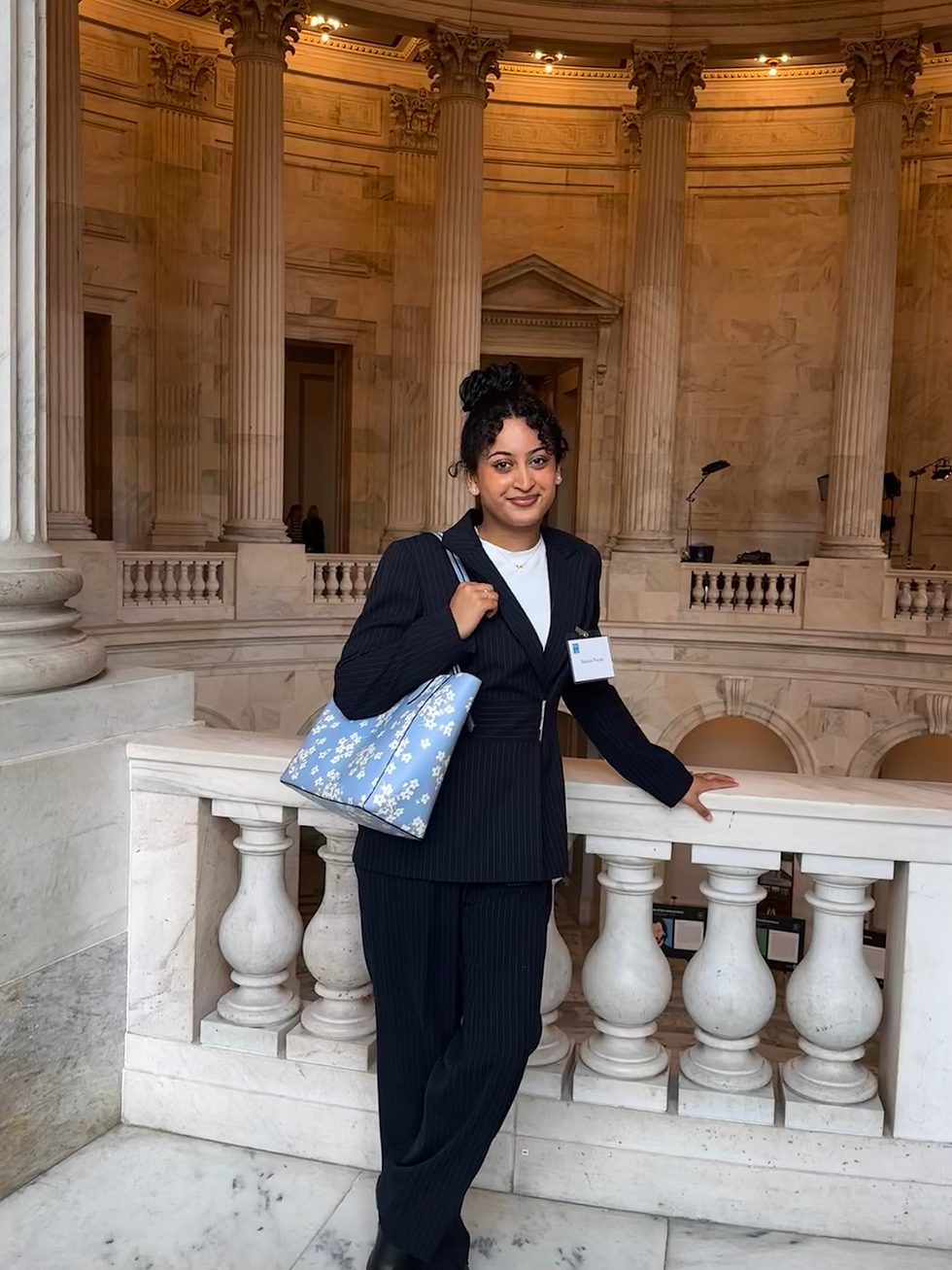Sahana's Story
- Sahana Nayak
- Jul 21, 2025
- 3 min read
Updated: Aug 23, 2025

If you could give one piece of advice to readers, what would it be?
"If you don't create the change, who will?” — Sahana Nayak
The Covid-19 pandemic was a tough period for me, like it was for many people. Isolation from friends, the inability to participate in my sport, and online schooling were challenges that I and many others faced, and all of these things were extremely detrimental to my mental health. I combatted this by volunteering, and giving my time to organizations that both addressed my struggles and provided a supportive environment, albeit in a virtual setting. Two specific positions stand out: I was a crisis counselor for youth and served marginalized populations in my area, as well as an eating disorder education volunteer coordinating presentations within my community. Working in the mental health space during the pandemic was both difficult and rewarding, and it ultimately provided me with a sense of self and community belonging in a time where it was sparse.
However, it was after lockdown that my mental health really took a turn for the worse. The lack of social connection during the pandemic had caused me to lose touch with many friends, making the transition back to in-person school and activities challenging. My classes were so hard that I often had to sacrifice many hours of sleep and leisure time to study. Swimming, a sport I once loved, became nearly unbearable because I hardly had motivation to do anything anymore. My relationship with both my body and my mind frayed even further. I was really, truly lost.
The biggest factor that helped me manage my mental health was creating change, both within myself and throughout my community. At the time, I was not in an environment that was conducive to me seeking help through therapy, though I would highly recommend that if it is available. Growing up in a South Asian household where mental health was heavily stigmatized caused me to dismiss depression, anxiety, and body image issues as "weakness". Firstly, I had to change the way that I was programmed to think about these struggles. No, they are not a sign of "weakness", nor are they easy to overcome. Mental health is a lifelong journey, with ups and downs and twists you never could have seen coming. By changing the way I conceptualized mental health, by giving myself grace and love, and by listening to my body and my mind, I was able to pull myself out of a dark place. I also changed some aspects of my life that I was in control of. I started playing a new sport - water polo, which engaged me in new ways while still allowing me to find comfort in the familiar waters I had been competitively swimming in. I switched to a different program at school where I was able to pursue the subjects I am passionate about, while allowing me to maintain a healthy sleep schedule and spend time on hobbies.
Creating change within myself has also empowered me to create change in my community and beyond, through a blend of education, research, and advocacy. My interests focus on the intersectionality between eating disorders, mental health, social media, and other similar avenues - all topics I have had personal experience with in some form. Building on my own experiences, as well as uplifting others' lived experience, has been central to the work that I do. At the end of the day, I hope that I can help create a world where young boys and girls have access to the education, support, and resources they need for their mental health.




Comments